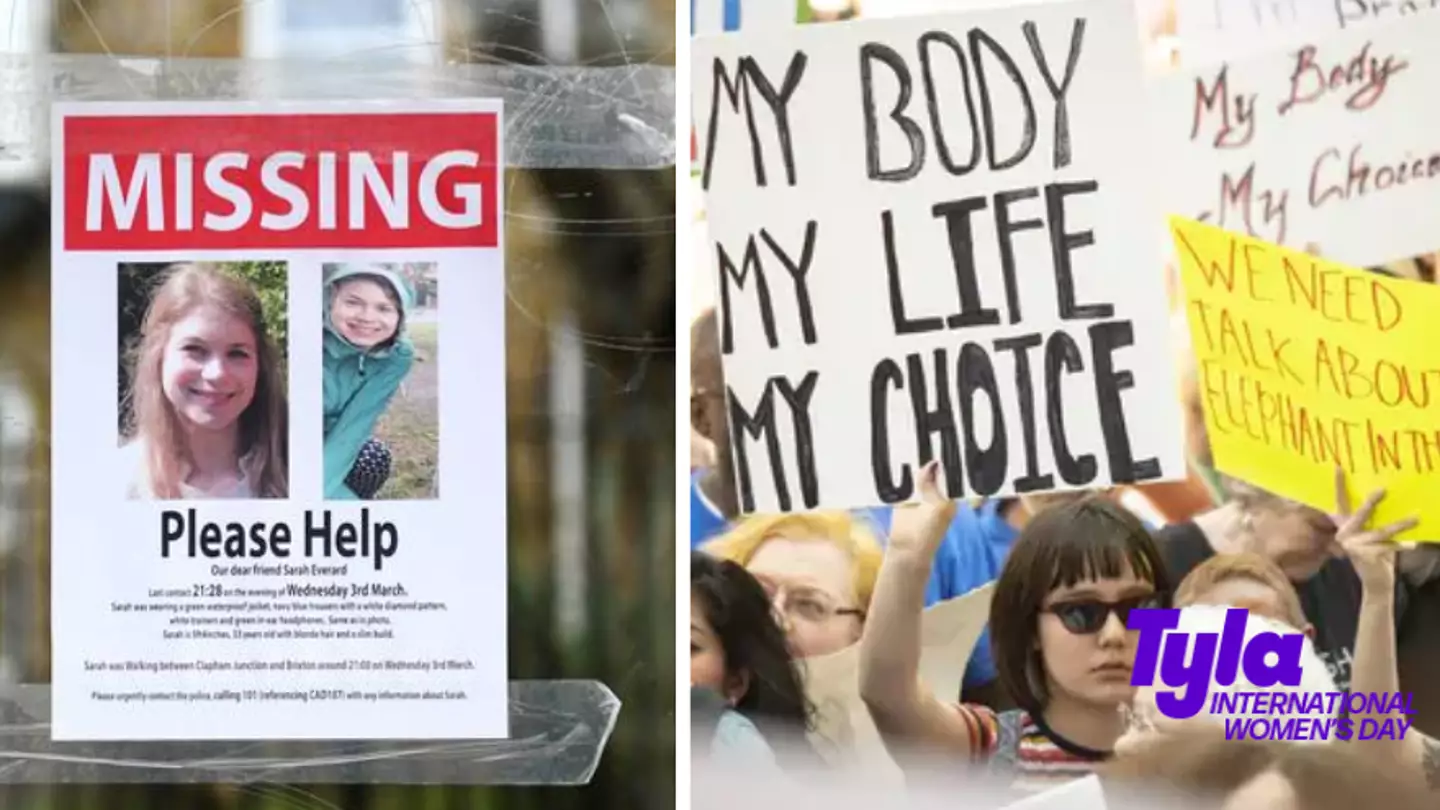
International Women’s Day has been celebrated every year since 1911 — but the global fight for equality is still as important as ever.
This year’s theme for IWD is #BreakTheBias, which encourages people to imagine a world “free of bias, stereotypes, and discrimination [...] a world where difference is valued and celebrated".
In honour of the theme, we're shining a light on the cold, hard facts that demonstrate how women are still struggling to be considered equal when compared to their male peers, both in the UK and around the world.
1. The Gender Pay Gap is still rampant
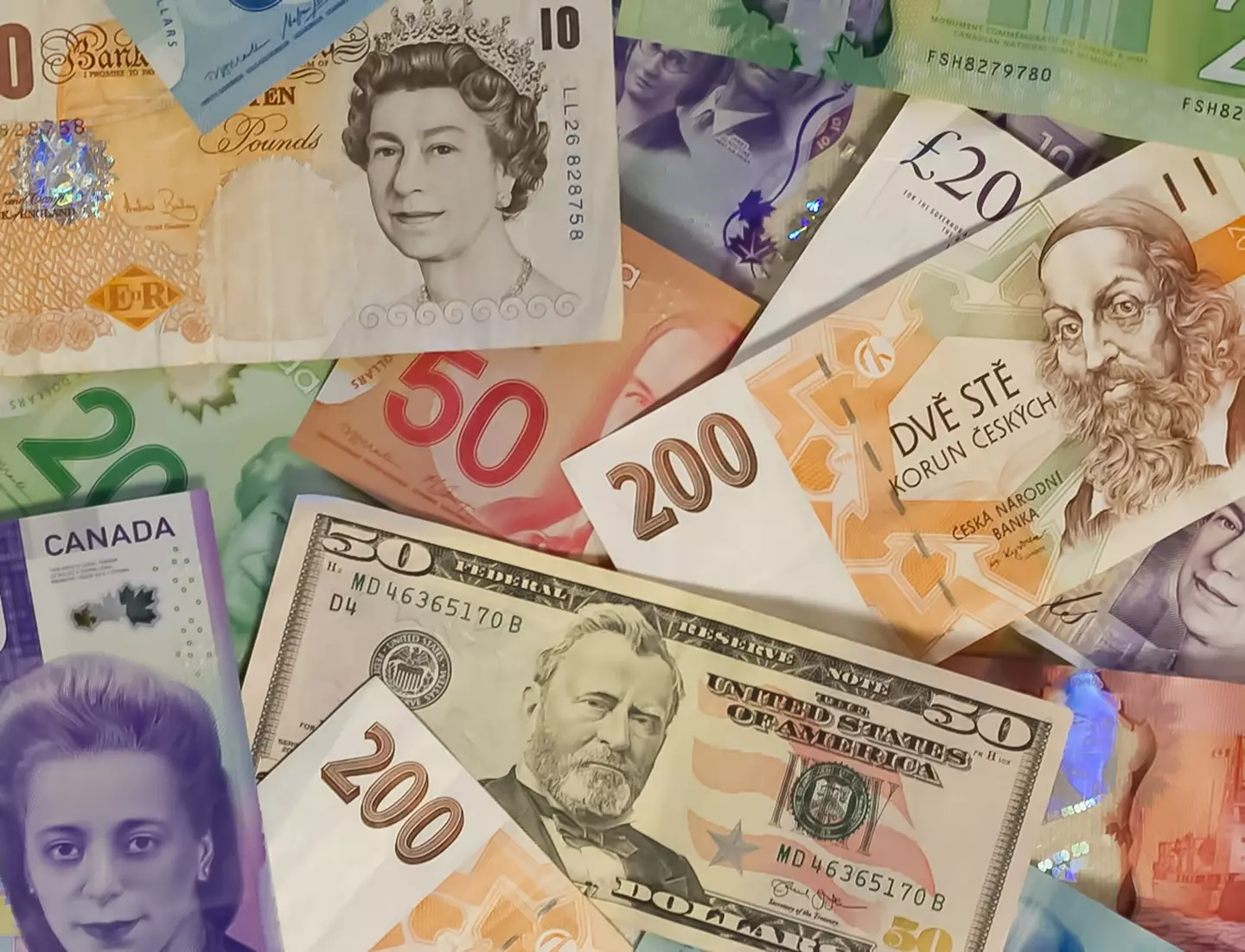 Unsplash)
Unsplash)

It may be illegal to pay a woman less money than a man for doing the same job in the UK, but that’s not to say that there isn’t still a substantial difference between men and women’s earning power. Statistics compiled last year showed that for every £100 a man makes in work, a woman only earns £84.60.
The pay gap extends beyond the salary discrepancies: statistics show that in 2021, men were more likely to receive a bonus than women and on average, the amounts awarded to males were higher.
2. Millions of girls still find themselves in period poverty
.jpg) Unsplash)
Unsplash)
.jpg)
It's thought that women spend around £5,000 throughout their lifetime on period products – and that doesn’t include pain relief and other medications often needed to make the monthly cycle bearable.
Advert
But those of us who do have the cashflow to cover our flow are considered the lucky ones, as numerous people out there who don’t have the money to have a safe period. Research by Plan International UK found that 49 per cent of girls have missed an entire day of school because of their period, with numerous horror stories of girls being forced to borrow pads from pals or stuff tissues down their underwear.
Thankfully, steps are being taken to eradicate period poverty. In 2020, for example, Scotland became the first country in the world to make products free.
3. We face an ongoing epidemic of violence against women and girls
.png) PA/Met Police)
PA/Met Police)
.png)
The last year was a particularly difficult one for women based in the UK, with numerous high-profile attacks against young women such as Sarah Everard, Sabina Nessa, Nicole Smallman and Bibaa Henry dominating headlines.
Advert
It is thought 1.6 million women in the UK have faced domestic violence, something that has soared in lockdown: women’s charity Refuge reported a 61 per cent increase in calls and contacts to their domestic helpline between 2020 and 2021.
And domestic violence is one of the predominant killers of women in this country: police recorded crime data showed that almost half (46 per cent) of adult female homicide victims in England and Wales (81 women) were killed in a domestic homicide.
In fact, it’s thought two women a week are murdered by a partner.
4. There’s a disturbing entitlement to women’s bodies
 Alamy)
Alamy)

UN Women UK reports at least 71 per cent of women have experienced some form of sexual harassment in a public space – and in reality, the number is likely much higher.
Advert
The constant onslaught against women has resulted in an environment where women and girls feel unsafe out in public.
A survey by the I newspaper found 31 per cent of respondents aged 25 to 34 feel unsafe walking alone at night. More than half (57 per cent) of women said their gender impacts how safe or unsafe they feel around others.
From being catcalled on the street by men from passing cars, to facing physical unwanted advances, it’s little wonder that women are calling for street harassment to be made an offence in its own right - data shows 87 per cent believe the law should change, while nearly two thirds (60 per cent) said tougher sentencing for sexual assault and domestic violence would be “very effective” in making the UK safer for women and girls.
5. Charge rates for sexual assault are worryingly low
 Alamy)
Alamy)

It was reported last year that fewer than one in 60 rape cases resulted in a charge. While there were 52,210 rapes recorded by police in England and Wales in 2020, only 843 resulted in a charge or a summons – an appalling rate of 1.6 per cent.
Advert
Victims' commissioner Dame Vera Baird said in her annual report that the level of prosecutions has got so low that "what we are witnessing is the de-criminalisation of rape".
Despite promising an overhaul in the system, a data analysis found it would take the government 18 years to reach their current rape charge target.
6. Women are more likely to go hungry
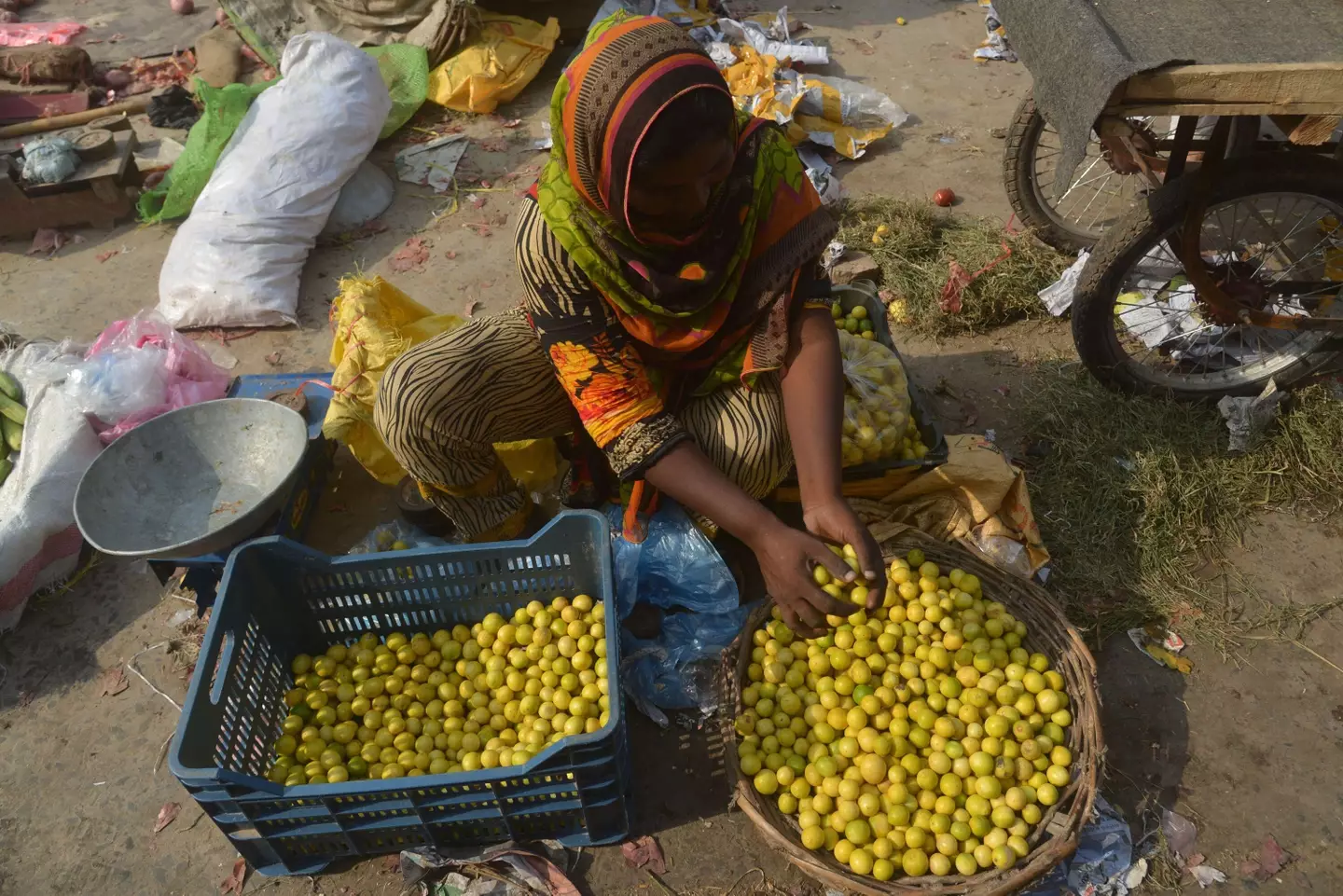 Alamy)
Alamy)

While we’re privileged enough to live in a country where a great deal of us have access to food and clean water, world hunger is still a prevalent problem in which women disproportionately face. WFP Gender Policy and Strategy has found 60 per cent of chronically hungry people are women and girls.
Advert
It is the sexist policing of women working in agriculture that further exacerbates the problem of world hunger. On average, women make up about 43 percent of the agricultural labour force in developing countries.
Evidence outlined by UN Women found that if these women had the same access to productive resources as men, they could increase yields on their farms by 20 to 30 percent, raising total agricultural output in these countries by 2.5 to 4 per cent. This would reduce the number of hungry people in the world by around 12 to 17 per cent.
7. Women are fundamentally trapped in a world designed for men
.jpg)
As we are progressing into an increasingly digital age, where many of day-to-day interactions are done online, it’s frustrating to see the tech industry is still a male-dominated field; with women filling only 19 per cent of roles in this industry.
As a result, we’re seeing technology being designed by men, for men: the average iPhone is getting bigger, which means they fit more comfortably in the palm of the average man’s hand (which is 2cm bigger than the average woman’s hands). Meanwhile, the launch of the Apple Health app in 2014 was roundly criticised for boasting it was a “comprehensive” way to monitor your body and its rhythms, but was missing any kind of period tracker.
While these may sound like trivial oversights, women living in a world designed for men can have serious – and deadly – consequences. When a woman is involved in a car crash, she is 47 per cent more likely to be seriously injured, and 17 per cent more likely to die. Why? Because cars and crash dummies are based on the average “male” – failing to counter female height and weight differences.
8. Women are poorly represented in media

The Global Media Monitoring Project (GMMP) conducted in 2015 the largest study on the portrayal, participation, and representation of women in the news media, and made the depressing discovery that less than a quarter of news sources are women, with women making up just 24 per cent of names and faces in print or broadcast journalism.
When women do appear on our screens, they tend to adhere to traditional beauty standards, will on average talk less than men, and are less likely to play roles as leaders or professionals in dramas.
Speaking about the rampant sexism in showbiz, director Lexi Alexander explained to The Guardian: “I would say 99 per cent of women working in the film and television industries have experienced sexism.
“I can list endless examples, from the driver who refused to take me because he was told to wait for the director (which was me) to the executives who insist they need a male director for a film about boxing and fighting, then hire a guy who never had a fight in his life, while I spent the better part of my youth being an international competitive fighting champion.”
9. It will take 140 years before the gender gap has closed entirely.
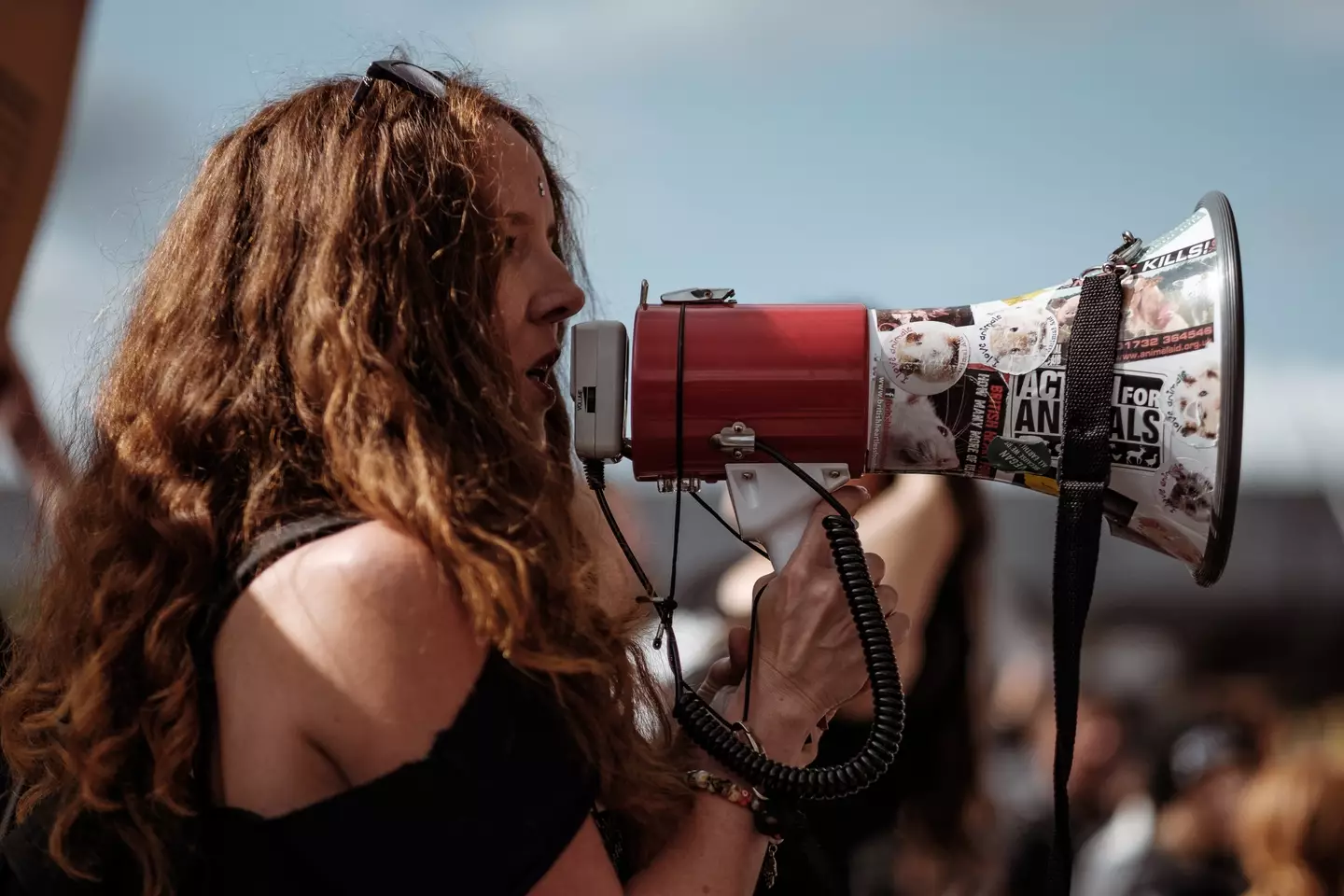
The coronavirus pandemic slapped an extra 36 years on widening the global gender gap.
The World Economic Forum’s 2021 Global Gender Gap Report estimates that it will take an average of 135.6 years for women and men to reach parity on a range of factors worldwide, instead of the 99.5 years outlined in the 2020 report.
On the whole, it’s the Nordic countries that perform the best when it comes to gender equality: Iceland, Finland, Norway, New Zealand and Sweden topped the list as the most gender-equal countries in the world. It is thought their child care provisions and care infrastructure are what distinguishes them from other countries, as they allow support for working families.
10. Internationally, women are suffering.
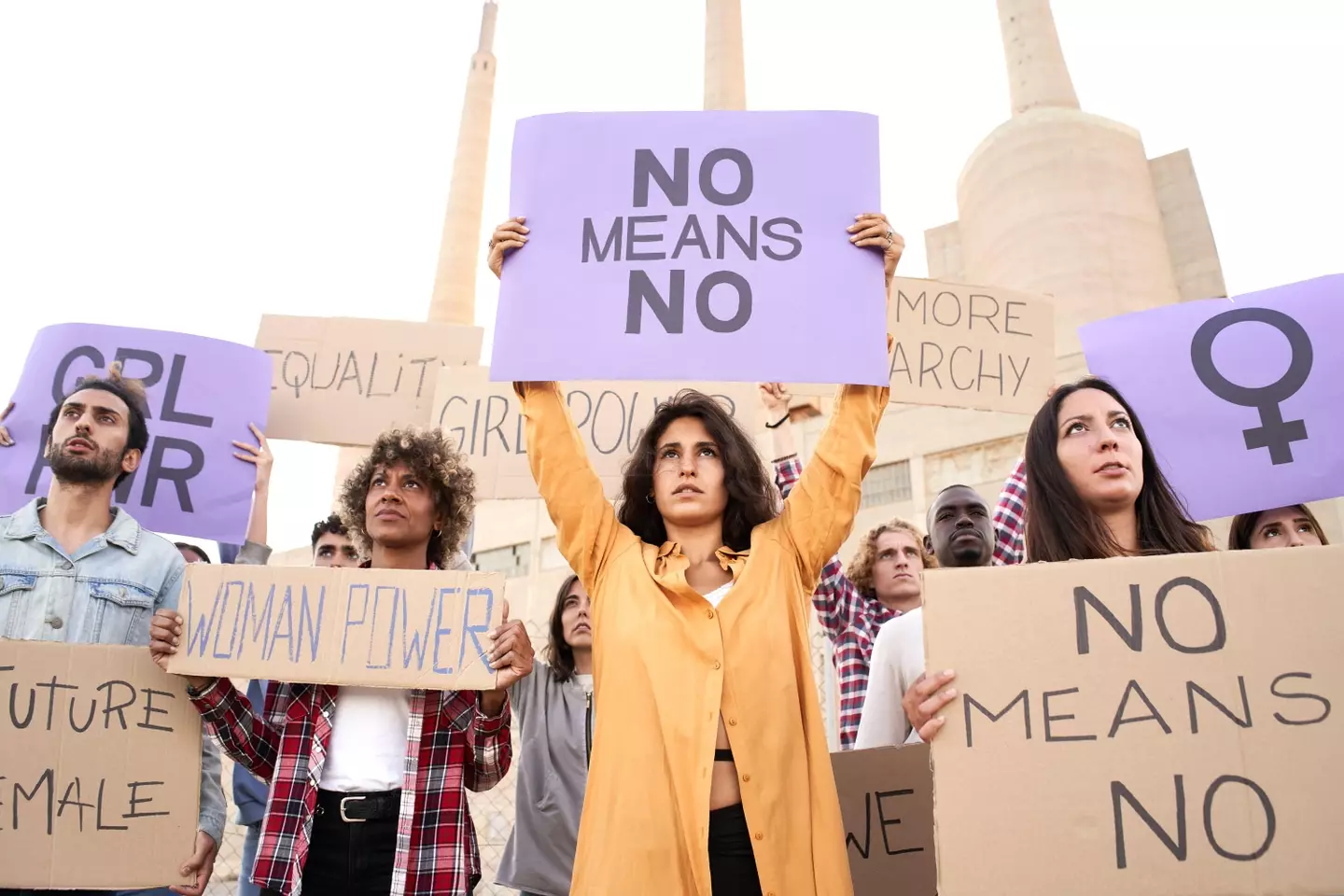
If you’re lucky and privileged enough to live comfortably in a society where you can open a bank account, walk the streets without a chaperone and not experience harassment from men, you may think you no longer need to celebrate or even be mindful of International Women’s Day.
However, while we are cocooned in a (not entirely, but significantly) equal society in the UK, we should be mindful of women across the globe who find themselves marred by numerous laws and sanctions that prevent them from living freely.
In Malta, if you marry a woman that has been kidnapped, jail time is waived, while in Nigeria (and 46 other countries in the world), it is legal for a man to beat his wife.
So for all the times you’re left wondering whether we still “need” International Women’s Day, spare a thought for women across the globe who have been denied the freedom and the privileges we enjoy.
Topics: News
